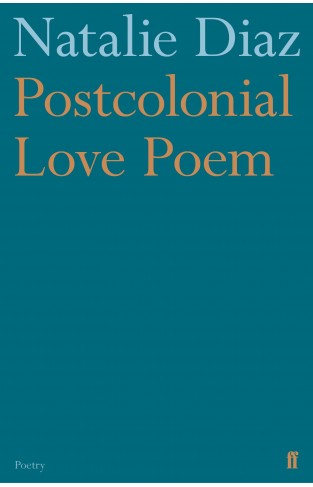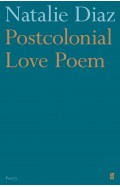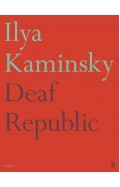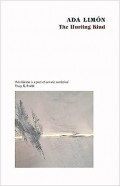Postcolonial Love Poem
By: Natalie Diaz
-
Rs 1,950.75
- Rs 2,295.00
- 15%
You save Rs 344.25.
Due to constant currency fluctuation, prices are subject to change with or without notice.
WINNER OF THE 2021 PULITZER PRIZE IN POETRY
SHORTLISTED FOR THE FORWARD PRIZE FOR BEST COLLECTION
SHORTLISTED FOR THE T. S. ELIOT PRIZE
POETRY BOOK SOCIETY RECOMMENDATION
Postcolonial Love Poem is a thunderous river of a book, an anthem of desire against erasure. It demands that every body carried in its pages - bodies of language, land, suffering brothers, enemies and lovers - be touched and held. Here, the bodies of indigenous, Latinx, black and brown women are simultaneously the body politic and the body ecstatic, and portrayed with a glowing intimacy: the alphabet of a hand in the dark, the hips' silvered percussion, a thigh's red-gold geometry, the emerald tigers that leap in a throat. In claiming this autonomy of desire, language is pushed to its dark edges, the astonishing dune fields and forests where pleasure and love are both grief and joy, violence and sensuality.
Natalie Diaz defies the conditions from which she writes, a nation whose creation predicated the diminishment and ultimate erasure of bodies like hers and the people she loves. Her poetry questions what kind of future we might create, built from the choices we make now - how we might learn our own cures and 'go where there is love'.
WINNER OF THE 2021 PULITZER PRIZE IN POETRY
SHORTLISTED FOR THE FORWARD PRIZE FOR BEST COLLECTION
SHORTLISTED FOR THE T. S. ELIOT PRIZE
POETRY BOOK SOCIETY RECOMMENDATION
Postcolonial Love Poem is a thunderous river of a book, an anthem of desire against erasure. It demands that every body carried in its pages - bodies of language, land, suffering brothers, enemies and lovers - be touched and held. Here, the bodies of indigenous, Latinx, black and brown women are simultaneously the body politic and the body ecstatic, and portrayed with a glowing intimacy: the alphabet of a hand in the dark, the hips' silvered percussion, a thigh's red-gold geometry, the emerald tigers that leap in a throat. In claiming this autonomy of desire, language is pushed to its dark edges, the astonishing dune fields and forests where pleasure and love are both grief and joy, violence and sensuality.
Natalie Diaz defies the conditions from which she writes, a nation whose creation predicated the diminishment and ultimate erasure of bodies like hers and the people she loves. Her poetry questions what kind of future we might create, built from the choices we make now - how we might learn our own cures and 'go where there is love'.
Zubin Mehta: A Musical Journey (An Authorized Biography)
By: VOID - Bakhtiar K. Dadabhoy
Rs 892.50 Rs 1,050.00 Ex Tax :Rs 892.50
The Hurting Kind: The new collection from the US Poet Laureate
By: Ada Limón
Rs 2,965.50 Rs 3,295.00 Ex Tax :Rs 2,965.50
The Origins of Political Order From Prehuman Times to the French RevolutioN
By: Francis Fukuyama
Rs 4,045.50 Rs 4,495.00 Ex Tax :Rs 4,045.50
The Hurting Kind: The new collection from the US Poet Laureate
By: Ada Limón
Rs 2,965.50 Rs 3,295.00 Ex Tax :Rs 2,965.50
No recently viewed books available at the moment.
Zubin Mehta: A Musical Journey (An Authorized Biography)
By: VOID - Bakhtiar K. Dadabhoy
Rs 892.50 Rs 1,050.00 Ex Tax :Rs 892.50
The Hurting Kind: The new collection from the US Poet Laureate
By: Ada Limón
Rs 2,965.50 Rs 3,295.00 Ex Tax :Rs 2,965.50














-120x187.jpg?q6)












-120x187.jpg?q6)


-120x187.jpg?q6)